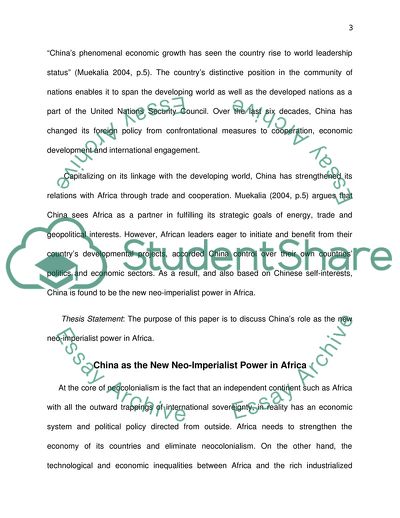Cite this document
(China is the New Neo-imperialist Power in Africa Essay Example | Topics and Well Written Essays - 2500 words, n.d.)
China is the New Neo-imperialist Power in Africa Essay Example | Topics and Well Written Essays - 2500 words. https://studentshare.org/history/1777536-china-is-the-new-neo-imperialist-power-in-africa-discuss
China is the New Neo-imperialist Power in Africa Essay Example | Topics and Well Written Essays - 2500 words. https://studentshare.org/history/1777536-china-is-the-new-neo-imperialist-power-in-africa-discuss
(China Is the New Neo-Imperialist Power in Africa Essay Example | Topics and Well Written Essays - 2500 Words)
China Is the New Neo-Imperialist Power in Africa Essay Example | Topics and Well Written Essays - 2500 Words. https://studentshare.org/history/1777536-china-is-the-new-neo-imperialist-power-in-africa-discuss.
China Is the New Neo-Imperialist Power in Africa Essay Example | Topics and Well Written Essays - 2500 Words. https://studentshare.org/history/1777536-china-is-the-new-neo-imperialist-power-in-africa-discuss.
“China Is the New Neo-Imperialist Power in Africa Essay Example | Topics and Well Written Essays - 2500 Words”. https://studentshare.org/history/1777536-china-is-the-new-neo-imperialist-power-in-africa-discuss.


